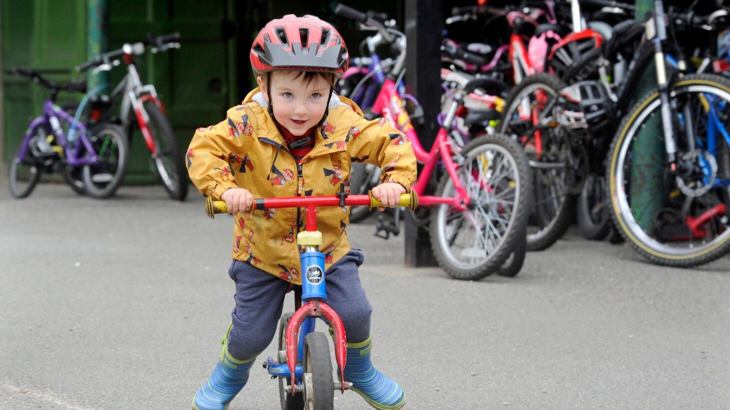Southport had been teaching children Bikeability for over two decades, but they couldn’t understand why the numbers of children participating plateaued. We worked with over 30 schools in Southport to help them realise their cycle town ambitions, and later expanded to other schools throughout Sefton.

Results in Sefton
- 17% of children always cycle to school
- 51% of children sometimes cycle to school
- bikeability training in Southport increased to 86% take-up by children (up from 70%)
Flat terrain, coastal paths and wide open roads make the Victorian seaside resort of Southport the natural choice for a cycling town. Sefton Council had long recognised the benefits of linking transport and health projects and they were pioneers in rolling out Bikeability to schools throughout the region.
In 2008 Sefton won almost £2 million to become a Cycle Town and boost cycling levels to European levels through improving infrastructure and travel behaviour change programmes in the community. They turned to us to help them boost the numbers of children travelling to school by bike.
The Challenge
“We’d been training children at schools in Southport about cycling on the roads for over 20 years, and Merseyside was the largest provider of Bikeability in the country,” recalls Jean Hunt at Sefton Council. “But the numbers of children who participated in year five and six remained static – at around 70% in Southport. Although we offered Bikeability to more schools the percentages were not increasing.”
Why Sustrans?
Sefton had worked with us before, mainly on infrastructure projects but this was the first time they commissioned us to work with schools. Jean explains: “We liked the idea that cycling could become part of the culture of the school and that you involve everyone in the local community –parents, grandparents, even the local supermarkets.”
Our approach
The Council started with 10 schools in Southport and expanded to 30, including Formby. Later they got more funding for schools officers throughout Sefton and now work with 41 schools.
When schools officers went into the schools they discovered that a lot of the children couldn’t ride a bike by Year 5, the year when Bikeability training started, which meant they weren’t able to participate in the scheme, which offers cycle training on the roads. The schools officers focussed on teaching those children to cycle before Year 5 so they were ready to take up the next level of training.
They also started offering cycling-related activities after school and in school holidays, which families were invited to join. ‘Ditch the Stabilisers’ events were particularly popular, as younger children could get the opportunity to learn to ride a bike, while all ages are welcome to join cycle rides.
There continue to be special events to inspire the children and their families about cycling, including an annual bike ride through the National Trust property at Formby, using pathways where cycles are not usually allowed. Schools are invited to an annual celebration of cycling achievements, where pupils and teachers enjoy tea and cake, while children receive their certificates. Events are all-inclusive for all-abilities. Grandparents are actively encouraged to join rides and special needs bikes are available for people with disabilities.
Meanwhile, Sefton Council has actively promoted the scheme to primary schools across the region. Public Health director Janet Atherton also proved a fantastically, who helped spread the word. She went on cycle training herself and has become an avid cyclist who constantly highlights the benefits of active travel to school and the workplace.
The results
Just a year later after the scheme began the results of participation in Bikeabliity jumped to 86% across 10 schools and the number of children who never cycled to school almost halved, to 34%. Today, in Sefton as a whole 17% of children say they always cycle to school and 51% say they sometimes cycle (compared to just 2.8% in 2007, before Sustrans started work in the area).
“Some of the results were quite startling,” says Jean. “We had thought Bikeability was good but within a few years of Bike It the results were much better.”
“Much of the success is about making cycling a really special for the children,” says Jean. “I think the Sustrans schools programme does that better than anyone else.
“I’ve been to loads of Bike It schools and you can’t help but get carried away by the enthusiasm of the people involved. The children really enjoy it. In some schools, children may not achieve much in their school life, but they can experience a massive achievement in getting their cycling certificates.”





